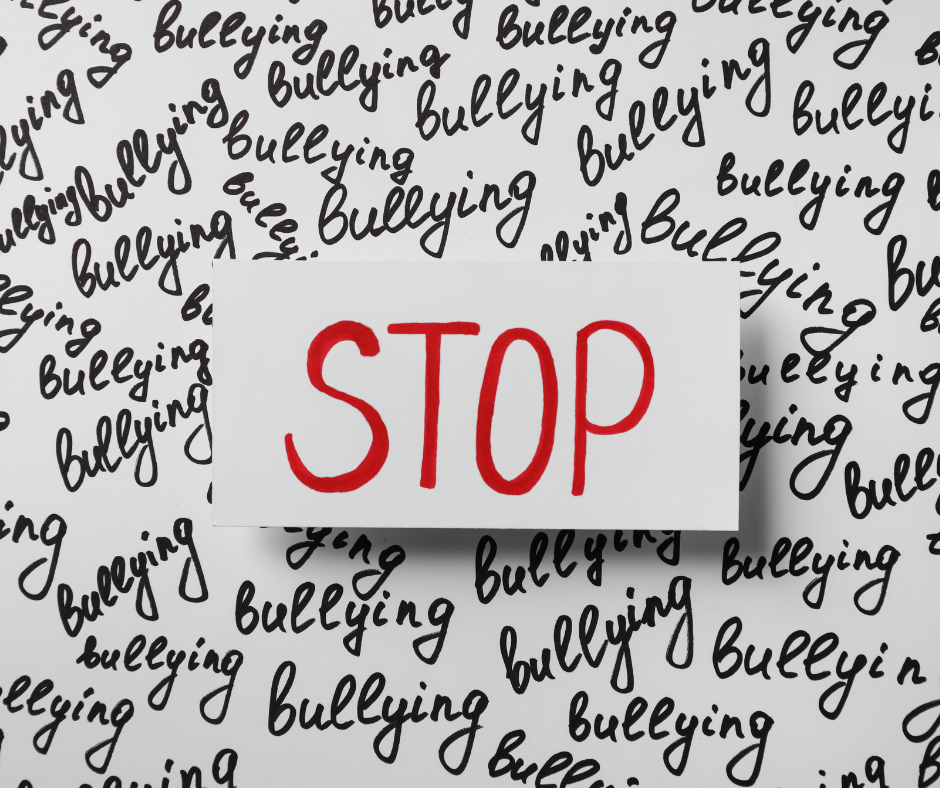Bullying: How to Help Address It with Your Child

Bullying is a tough subject—but an important one. Whether your child is being bullied or you discover that they are bullying others, it can be difficult to know how to respond. Both situations can feel overwhelming for parents, but open and honest conversations are key to guiding children toward healthier, safer behaviors.
If your child is the target of bullying, they may feel scared, embarrassed, or unsure how to ask for help. On the other hand, if your child is the one bullying, it doesn’t mean they’re “a bad kid”—but it does mean they need guidance to understand how their actions impact others and to learn better ways to handle their feelings.
As parents, your support, patience, and willingness to step in can make all the difference. By addressing bullying directly, you can help your child build resilience, develop empathy, and feel empowered to make positive choices.
How to Talk to Your Child If They Are Bullied
Listen and Stay Calm
If your child shares an experience with bullying, thank them for telling you. Stay calm so they feel safe opening up, and let them know it’s not their fault.
Teach Your Child How to Respond
Bullies often want a reaction. Encourage your child not to cry, argue, or give in to demands. Instead, they can:
- Stay calm and walk away when possible.
- Speak firmly and clearly if walking away doesn’t stop the behavior. For example:
“Stop doing that now. If you keep bothering me, I’ll report it.” “I’ll talk to you, but I’m not going to fight.”
If your child isn’t used to speaking firmly, role-play situations together so they feel more confident.
Encourage Friendships
Children who have close friends are less likely to be bullied—and if they are, friends can step in and support them. Encourage your child to form positive relationships with classmates and peers.
Get Help From Trusted Adults
Remind your child to report bullying to a teacher, school counselor, or other trusted adult right away. Stress that asking for help is not “tattling”—it’s standing up for themselves in a safe way.
Partner with the School
If bullying continues, don’t hesitate to contact your child’s teacher, counselor, or principal. Schools have a responsibility to provide a safe environment. In most cases, it’s better to let school staff address the behavior directly rather than confronting the bully or their parents yourself.
Watch for Emotional Effects
Bullying can take a toll on a child’s mental health. If your child shows signs of anxiety, depression, or ongoing fear, talk with your pediatrician. They may recommend further evaluation or a referral to a mental health professional.
How to Talk to Your Child If They Are Bullying
As parents, it’s never easy to hear that your child may be bullying others. You might feel surprised, defensive, or even ashamed. But it’s important to remember: learning that your child is engaging in bullying behavior doesn’t mean they are a “bad kid.” It does mean they need guidance, accountability, and support to change their behavior.
Bullying often stems from deeper issues—such as wanting to fit in, struggling with emotions, or not knowing healthier ways to handle conflict. By talking openly with your child, you can help them understand the impact of their actions, build empathy, and learn positive ways to interact with others.
Your role is not only to correct the behavior but also to teach valuable life skills like kindness, respect, and problem-solving. With your support, children can take responsibility, make better choices, and grow into more compassionate individuals.
Stay Calm and Listen
Approach the conversation with a calm, open tone. If you come in angry or accusatory, your child may shut down. Give them space to share their perspective.
Avoid Labels
Instead of calling your child “a bully,” focus on the behavior. Say, “What you did was hurtful,” rather than, “You are a bully.” This helps your child understand that while their behavior needs to change, they are not defined by it.
Ask Questions
Try to understand what’s driving the behavior. Questions like, “What made you act that way?” or “How were you feeling at the time?” can uncover whether it’s peer pressure, anger, insecurity, or something else.
Teach Empathy
Help your child imagine how the other child felt. Ask, “How would you feel if someone said or did that to you?” Building empathy is a powerful way to reduce bullying behaviors.
Set Clear Expectations
Make it clear that bullying is never acceptable. Explain your family’s values around respect and kindness, and discuss what needs to change moving forward.
Work on Problem-Solving Skills
Help your child practice healthier ways to cope with frustration, anger, or the desire for attention—like walking away, talking it out, or finding a constructive activity.
Partner With the School
If the bullying happened at school, connect with teachers or counselors. Working together ensures your child has consistent guidance and accountability.
Model Positive Behavior
Children learn a lot by watching adults. Show kindness, respect, and healthy conflict resolution in your own interactions.
Whether your child is being bullied or has engaged in bullying themselves, your role as a parent is to guide, protect, and teach. By addressing the issue directly—through calm conversations, empathy-building, and strong partnerships with schools and healthcare providers—you can help your child feel safe, understood, and empowered to make positive choices that last a lifetime.
For questions, to book an appointment, or any other concerns, Augusta Pediatrics can be reached at (706) 868-0389. The information on this site is not intended or implied to be a substitute for professional medical advice, diagnosis or treatment. All content, including text, graphics, images and information, contained on or available through this web site is for general information purposes only.

Leave a Reply